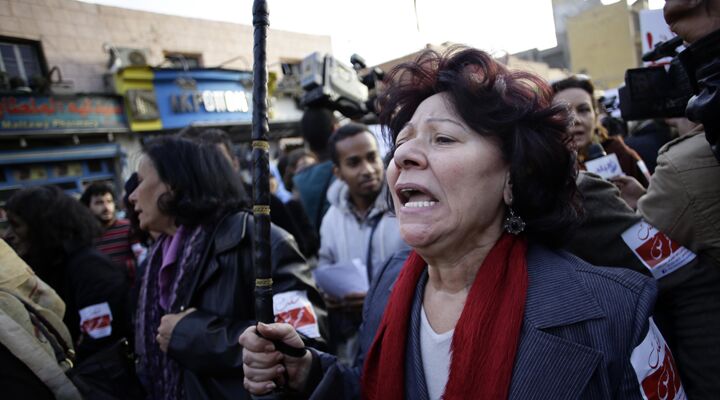
Why Women Fear Tahrir Square
After two years of the “new Egypt,” sexual harassment has increased beyond pre-revolution levels. It was a common scene in the early days of the Arab Spring to see women calling for the ousting of then President Hosni Mubarak, and simultaneously urging for more rights. Today, women walk the streets in fear of attack and exploitation in a way they never did before. The attacks add to mounting evidence that the current administration is a far cry from the democracy the Western world was hoping for.
Since February 2011, there have been 531 acts of sexual harassment reported in Cairo. The current situation of women in Egypt carries a horrid irony. The attacks against women peaked on the day of the anniversary of the revolution. Last year, as protesters and activists filled the streets, so did molesters, perverts and rapists. On that one day, there were two dozen reported assaults on women in demonstrations at Tahrir Square.
Tahrir Square lies at the heart of Cairo, the capital city of Egypt. It remains the staging ground for protests, and was used as the launch pad for the Arab Spring. Cries of reform and revolution rose from the square to the outside world. Today, the crying continues, but it is tainted with the pleas of women that are targeted in acts of sexual assault.
The international community has so far been unable to stem the tide of attacks.
Meanwhile, hard-line Islamists within Egypt put forward their solution: Don’t let women protest. They claim it is the fault of the women for being there in the first place, or that they bring it on themselves for wearing provocative clothing.
Some victims blame Egyptian President Mohamed Morsi. They claim the attackers are sent out by those who would want to see any uprising against Morsi’s government quelled. Women make up a large portion of protesters. If they can be frightened off the streets, the protests will lose numbers, and their momentum will slow. One protester attending the rally on the anniversary said, “Women activists are at the core of the revolution …. If you break them, you break the spirit of the revolution.”
The government has been accused of using the military to drive women from the streets. In December 2011, soldiers were caught on camera stripping a female protester and dragging her through the streets. Scenes such as this are not uncommon in Egypt today.
Tahrir Square may be the main site, but it is just one site. As the current administration pushes a more radicalized agenda, watch for the women in the country to suffer under more oppression. The activists are still on the streets for now, and the attacks will continue. The abuse should be setting off alarm bells across the world. A democratic Egypt has failed. Read “America’s Self-righteousness Is Destroying Egypt” to see why the rights of women in Egypt are not set to improve.
